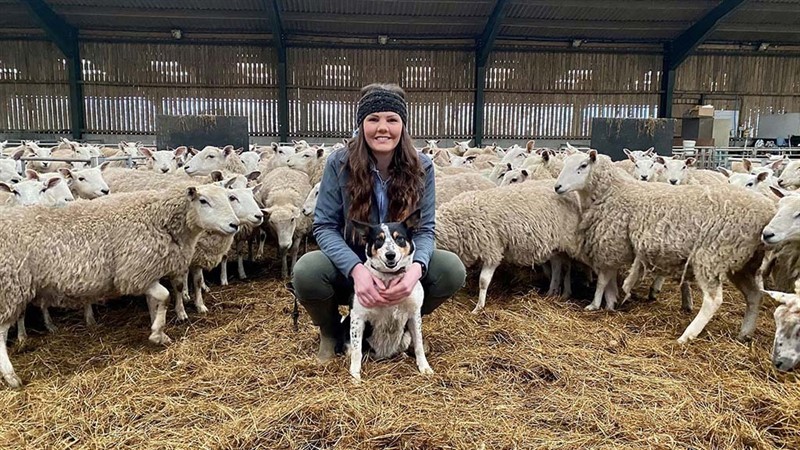NFU next generation forum member and uplands farmer Helen Drinkall wrote a column in Farmers Guardian this week outlining her concerns about the end of BPS.
Read the full column here:
For some farmers, they are dipping their toes into a new, exciting era for UK agriculture. For me, I am staring down the barrel of a gun and I would be lying if I said I wasn’t terrified about what the loss of BPS means for tenant hill farmers like myself.
My family produce commercial meat to feed the population. Food production is what we do. But currently, like many hill farmers, we rely on BPS for a large proportion of our income.
As I said in a letter to Defra Secretary of State George Eustice last month, BPS has been both a blessing and a curse. It has kept consumer prices down while maintaining the viability of businesses, but both farmers and consumers are now in for a shock; without BPS we won’t be able to maintain the low lamb price with ever-increasing input costs.
Even the current high farmgate price for lamb is not enough to cover the costs to produce it without BPS. And we know from the past 15 years of volatility that this high price is only temporary.
So, either the consumers will have to fork out much more for their lamb or businesses will seriously struggle. Unless, of course, the future ELM scheme can offer enough to fill the gap.
So what are our options? Farming on the edge of the Pennines means we are solely limited to extensive sheep and hill cows. We aren’t able to switch to dairy if we wanted to and our moor certainly can’t be ploughed and planted with wheat.
There’s always new tech – handling systems, EID and weighing crates have really helped us make efficiency improvements in the past. But there’s currently nothing coming down the tracks that will help uplands businesses make the productivity gains needed to make up for the BPS gap.
Carbon offsetting may well be an option for us in the future, but as tenant farmers there is the risk that the rewards would skip us completely and go straight to the landlord.
Diversification is an option but it’s a saturated niche. We already offer meat boxes but we can’t all have fields of glamping pods, nor do we all have the time it takes to effectively run another business.
While I’m willing to try almost anything at this point to provide another income stream, I know that diversification is not an option for everyone and there’s always a voice in my head saying I want to be a farmer, not a caterer or event manager. I want to work the land to produce food and its devastating to me that this primary role is no longer enough. And in my mind, no diversification project should be used to prop up livestock.
What we do have going for us is that upland extensive sheep and beef farming is one of the most environmentally friendly way of producing protein so we should stand to benefit from the future ELM scheme, and this is where the government’s focus needs to be.
It is imperative that the future ELM scheme has a much greater focus on food production in the uplands, offering practical and profitable options that put food production and environmental delivery in equal stead. It can’t simply become a replica replacement for the current Countryside Stewardship schemes as they just don’t work for upland farms.
For businesses like mine, ELM is the only route I can see working, and with the little information we have about it that’s still a big if. Even more imminently, there are huge questions that need answering around how we will access funds before ELM is rolled out.
There’s no denying that hill farming remains crucial to rural economies and communities. We produce an important chunk of the country’s protein and the countryside would be a very different place without us – it would be a critical mistake to leave us behind.
As I made clear to the Secretary of State, the government should be seeking to build sustainability and resilience in British businesses. It must recognise the value of hill farming to both food production and environmental delivery and support the sector through the transition from BPS. But, ultimately, we need viable alternatives, and urgently.
